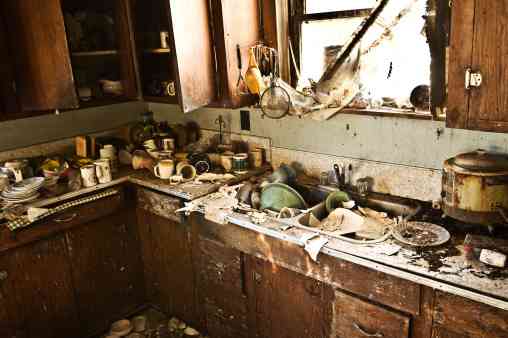
I was recently shocked when a landlord shared a short video of how a tenant turned his cosy apartment into an ugly one. The tenant changed the wall painting and also covered most of the walls with wallpaper, which did not amuse the landlord. Before the tenant moved out, he didn't bother to clean the house to leave it in the condition he found it when he had moved in. Photos showed a clean apartment that had cool wall painting and everything was in order before the tenant moved in. I am not pointing fingers but it is good manners to maintain a property even if we are paying rent.